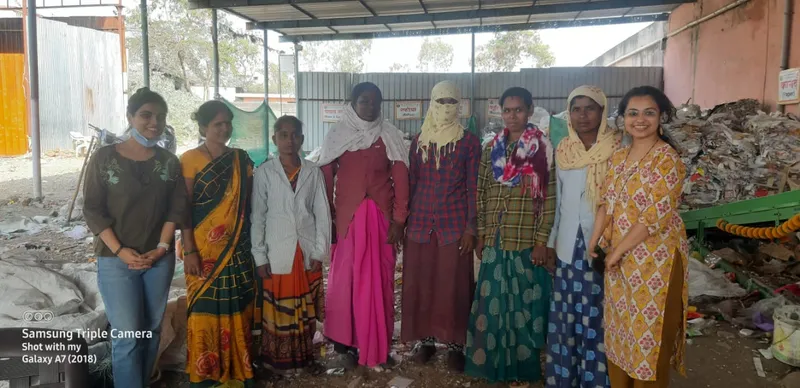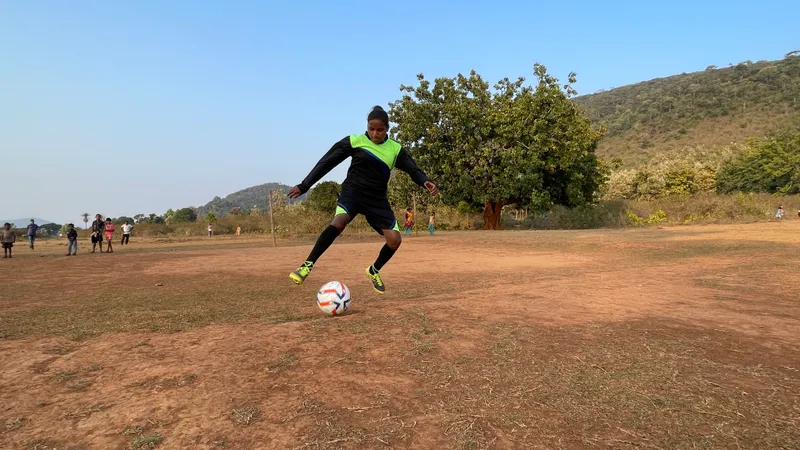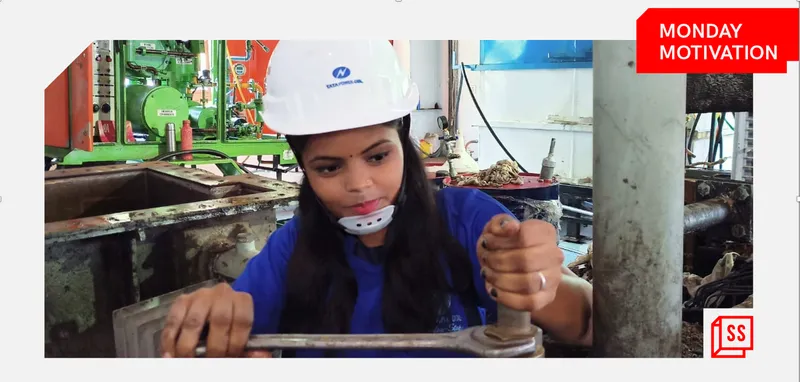From empowering safai mitras to offering eye care to underprivileged: Top SocialStories this week
This week, SocialStory interacted with individuals and organisations who are empowering others in different ways in their own capacities.
It is always inspiring to learn about different personalities and the impact they are creating in the world.
One such story is of the sisters Jyamuna and Sharmilata Pradhan who started a movement campaigning against child marriage and promoting the use of sanitary napkins and other safe menstrual practices.
How Recykal Foundation is empowering India’s safai mitras
According to the Solid Waste Management Rules, 2016, Rule 3 (1) 58, under the Ministry of Environment, Forest and Climate Change, waste pickers are “people or group of persons informally engaged in the collection and recovery of reusable and recyclable solid waste from the source of waste generation—the streets, bins, material recovery facilities, and processing and waste disposal facilities, for sale to recyclers directly or through intermediaries to earn their livelihood” [sic].

Still considered part of the informal economy, the country’s waste management system is also fragmented and unorganised with waste pickers, processors, and sanitation workers at the bottom of the value chain. These safai mitras are paid sub-minimum wages and live in slums. Many find it difficult to provide a single meal a day for their families.
“Over 70 percent of safai mitras are women, and there is a lot of mental and physical exploitation that makes it an unsafe working environment for women. Women are paid far less than their male counterparts. Child labour is prevalent, with young kids working in hazardous conditions causing severe health ailments. The lack of societal acceptance has left these people stuck in a vicious cycle,” says Viiveck Verma, Chief Impact Officer of (Recykal), which is working to transform this sector.
How two sisters from a remote village in Odisha are changing destinies through football
Every morning, Sharmilata Pradhan uses her family’s shared mode of transportation–a solitary cycle – to travel five kilometres, one way, to attend classes at a college in the town near her village.
The 19-year-old, who is studying economics and anthropology, is the first in her village to graduate high school. Her sibling, Jyamuna, 23, was forced to give up her education after Class 10 because the family could not afford to keep her in school while educating their other three children. Their parents are marginal farmers, who also work as labourers to help make ends meet, and Jyamuna has joined her parents to help support her siblings. Sharmilata too is pragmatic about what lies in store for her.

Sharmilata, 19, whose favourite player is Christiano Ronaldo, dreams of playing football for India.
“Like Jyamuna, I will also have to give up studying after I graduate next year so that my brother and younger sister can continue their education. He will finish Class 10 soon and will need the cycle to attend college. He currently goes to a school far away from our village on the back of a friend’s cycle. My youngest sister studies at the school in our village,” says Sharmilata, speaking to Social Story from her village Jiridikia in Odisha’s Kandhamal district, one of the most remote areas in the state inhabited by tribals like the Kandha Primitive Tribal Group (PTG) to which the girls belong.
This social enterprise helps 1 million unprivileged Indians every year see better
At the age of 23, Jordan Kassalow, who was a volunteer at a medical mission in the Yucatán Peninsula in Central America, realised that the only thing standing between 2.5 billion people and their ability to get an education and earn a living was a simple pair of glasses.
This was the genesis for the New York-based Scojo Foundation—which started in 2001 with the goal of reaching and providing affordable, quality glasses to people worldwide who need them.

A tailor in India who was helped by VisionSpring in getting her vision back through spectacles
The foundation partnered with Helen Keller International to launch a six-month pilot programme in Andhra Pradesh in 2005. In 2008, Scojo Foundation was renamed to VisionSpring.
“Our goal is to solve the issue of uncorrected blurry vision in a generation to create not only a ‘clear vision India’ but a ‘clear vision world’. We can’t do it alone; we can achieve a clear vision for all only through collective action across sectors,” she adds.
How a female electrical technician is making a mark in the male-dominated profession
Some of Roshni’s earliest memories are of growing up in her maternal grandmother’s house after her mother died. “I was still only a few months old, and my father and his family did not want me,” says the 24-year-old, who prefers to use only a mononym to distance herself from her father’s family. Since then, she has been raised by her maternal grandmother and aunts, who despite financial hardships, took good care of her and educated her till Class 12.

“I had to stop my formal education after graduating from high school because there was no money left to educate me. I stayed home for two years–between 2015 and 2017–before they could afford to again,” says Roshni, who finds it difficult to look back at those challenging times.
In 2017, she enrolled herself in the Delhi Government’s Industrial Training Institute (ITI), Pusa. “My relatives told me about this two-year Skill India course and encouraged me to sign up. I studied hard and did well, so even before my second year was over, I was recruited by Tata Power as a technician.”
Edited by Affirunisa Kankudti






